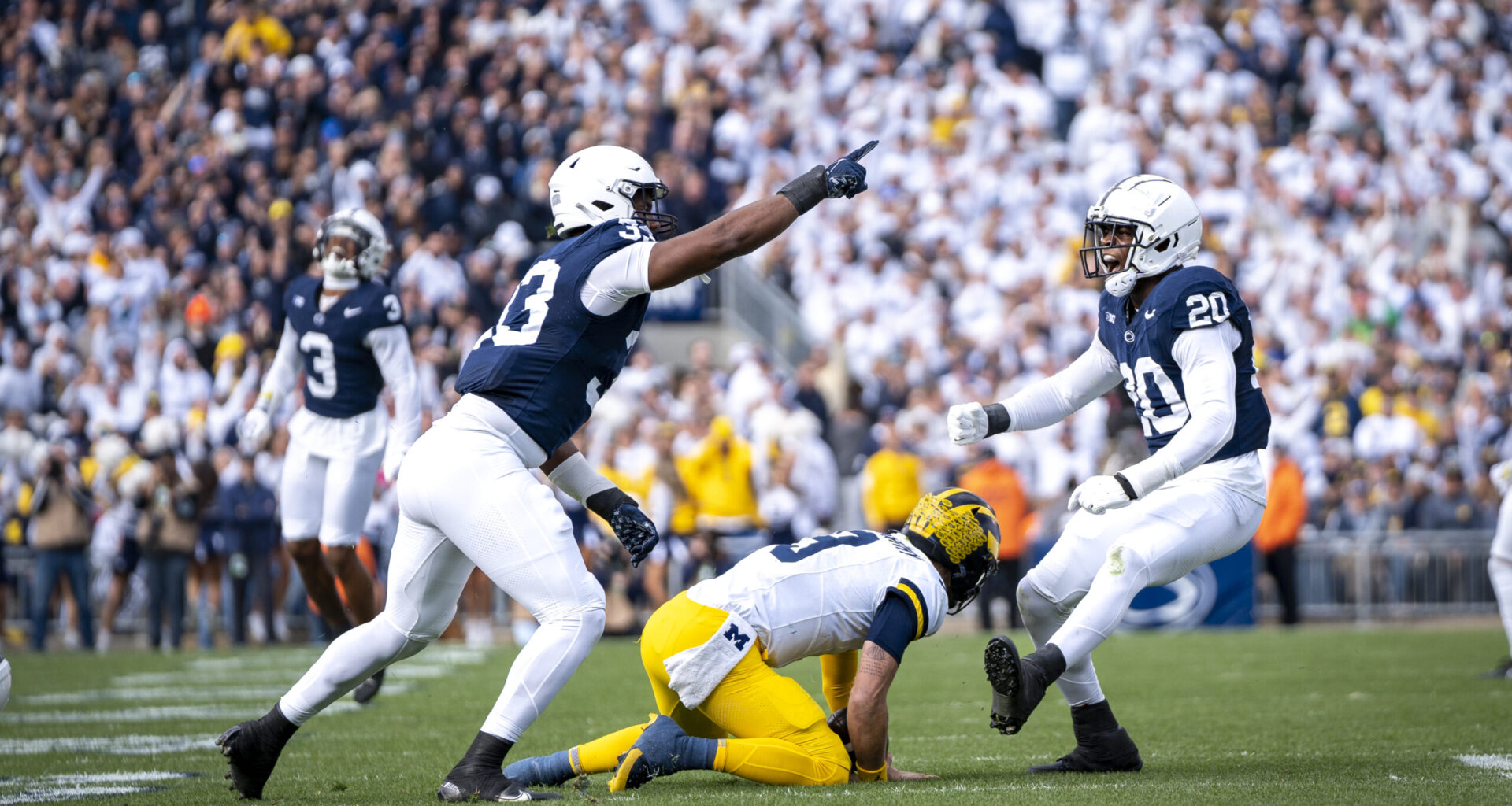The NCAA announced on Friday the punishments for Michigan in response to the Conor Stallions sign-stealing scandal that occurred in 2022.
The punishments are mostly financial, including a fine equivalent to the anticipated loss of all postseason competition revenue sharing associated with the 2025 and 2026 football seasons, a fine equivalent to the cost of 10% of the scholarships awarded in Michigan’s football program for the 2025-26 academic year, and a $50,000 fine, plus 10% of the budget for the football program.
It will also impact recruiting for the Wolverines in the 2025-26 cycle, with a 14-week prohibition on recruiting communications within the football program during the probation period and a 25% reduction in football official visits during the 2025-26 season.
For the coaches, Jim Harbaugh receives a 10-year show-cause order, Sherrone Moore a two-year order, Connor Stalions an eight-year order, and Denard Robinson a three-year order.
Simply put, Michigan got away with a slap on the wrist that could promote teams around the country to continue pushing the boundaries and trying to get away with blatant cheating.
The NCAA did its best to make it seem like a legit punishment for the Wolverines, but if you take a deeper dive, it becomes obvious that it was just smoke and mirrors.
The first thing to look at is the recruiting punishments. Michigan will be given 25% fewer official visits for the 2025 season. A quick Google search reveals that since 2023, schools have been allowed unlimited official football visits. What is 25% less than unlimited, you ask? Well… It’s still unlimited.
The next round of punishments was just as soft. The four coaches who were involved and knew about what was going on were given show-cause suspensions.
Now this seems like a lot, but the thing about the show-cause suspension is that it does nothing. The only difference to the coaches is if they are hired somewhere outside of Michigan, while still in the NCAA, that school has to “show-cause” why they should be able to hire said coach and what has been done to make sure the cheating won’t happen again.
For Stallions, the eight-year suspension may affect him if he tries to make the jump from high school to college in the coming years. For Moore, who recently signed a five-year deal with Michigan, the two-year suspension does absolutely nothing. This is the same with Harbaugh, who recently made the jump to the NFL and has no thoughts about returning.
Now, the financial punishments do make sense. The potential $30 million fine is one of the largest in NCAA history and has caused the Wolverines to appeal the punishment. But in the era of NIL, what team wouldn’t be willing to pay $30 million for a national championship? I mean, there’s probably 10 teams in the country doing that anyway.
The worst part of the case isn’t the lack of punishment, though; it’s the reason for a slap on the wrist.
“A postseason ban is required in this case. Michigan’s case is Level 1-Aggravated. Michigan is also a repeat offender,” the NCAA’s press release read. “Given those facts, a multi-year postseason ban would be appropriate. That said, the NCAA constitution states, ‘Division and, as appropriate, conference regulations must ensure to the greatest extent possible that penalties imposed for infractions do not punish programs and student-athletes not involved nor implicated by the infractions.”
So essentially, for the Michigan case, the NCAA has decided for the first time not to punish students not involved in the cheating.
While I know these are very different circumstances, where was this when they brought the hammer down on Penn State players in 2012 for a case involving a coach who left the school in 1999? Where was it during tattoogate when there were postseason bans placed on Ohio State until 2015 for something that happened in 2010?
Or what about SMU, a school punished for breaking the same bylaw as Michigan, 19.12.6.2, for being a repeat offender that was given the death penalty, ending the season of countless players that were not paid to go to the school.
And what about vacating seasons? How can Notre Dame lose 21 football wins from the 2012 and 2013 seasons because a trainer provided “impermissible academic assistance”, including tutoring multiple football players, but Michigan gets to keep its games that they stole signs for?
It’s not like they would be breaking a precedent either. Vacating championships is not new to the NCAA. Just look at the Louisville basketball scandal, which forced them to give up all games from 2011 to 2015. That’s a national championship and final four run in back-to-back years gone, all for illegally recruiting players, something Michigan has also been caught with twice in the last five years.
The inconsistency of the NCAA never fails to amaze, but this time it has the chance of ruining the sport. If the NCAA can’t hold teams accountable for blatant cheating, which they admit they have clear evidence of, then who will?
“The era of heavy-handed NCAA penalties is over,” Nicole Auerbach wrote. “It’s worth looking for shortcuts, playing the gray area, and even cheating outright. If you get caught, you’ll simply pay a fine – just like they do in the pros.”
At the end of the day, a football program worth $1.83 billion, per On3, will get away with a fine worth 1.63934426% of that.
For me, the worst penalty they received is the loss of respect. When you make it to the top of the sport, you become immortalized and have an aura around the program for years. Look at the recent Alabama, Georgia, or Ohio State teams. They have gained the country’s respect, and that is something that 2023 Michigan will never have.
The 2023 Wolverines will forever be known as *.
